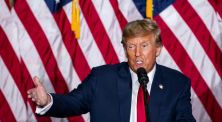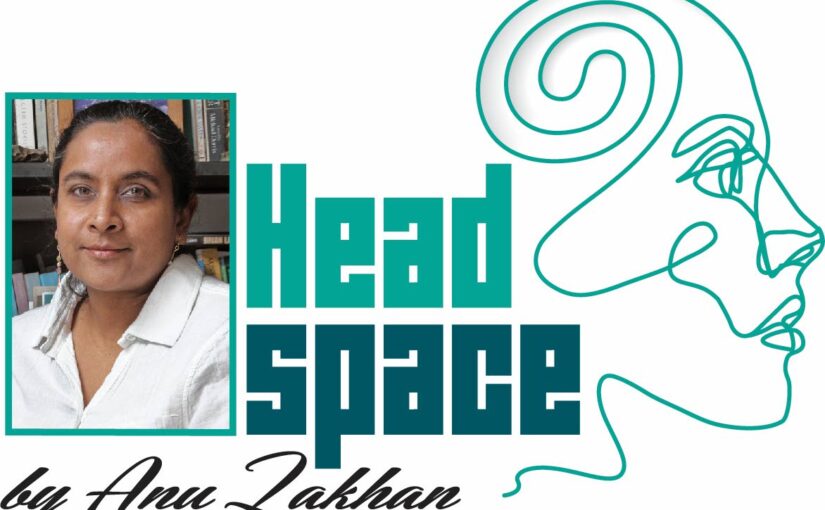The administration of US President Donald Trump has returned to the proposed subsoil deal the requirement for Ukraine to reimburse all the...
Vous n'êtes pas connecté
- English
- Français
- عربي
- Español
- Deutsch
- Português
- русский язык
- Català
- Italiano
- Nederlands, Vlaams
- Norsk
- فارسی
- বাংলা
- اردو
- Azərbaycan dili
- Bahasa Indonesia
- Հայերեն
- Ελληνικά
- Bosanski jezik
- українська мова
- Íslenska
- Türkmen, Түркмен
- Türkçe
- Shqip
- Eesti keel
- magyar
- Қазақ тілі
- Kalaallisut ; kalaallit oqaasii
- Lietuvių kalba
- Latviešu valoda
- македонски јазик
- Монгол
- Bahasa Melayu ; بهاس ملايو
- ဗမာစာ
- Slovenščina
- тоҷикӣ ; toğikī ; تاجیکی
- ไทย
- O'zbek ; Ўзбек ; أۇزبېك
- Tiếng Việt
- ភាសាខ្មែរ
- རྫོང་ཁ
- Soomaaliga ; af Soomaali
Rubriques :
 Maroc - EURASIAREVIEW.COM - A la une - 21/Mar 16:53
Maroc - EURASIAREVIEW.COM - A la une - 21/Mar 16:53
Pakistan: Transforming Investment Through SIFC – OpEd
In recent years, Pakistan has made several attempts to attract investment and streamline business operations. One of the key initiatives in this process has been the creation and evolution of the Special Investment Facilitation Council (SIFC). The SIFC was not the first attempt in this regard. The idea of establishing a body to fast-track investments and reduce bureaucratic hurdles dates back several decades. In 1989, former Prime Minister Benazir Bhutto established the Board of Investment (BOI) to help ease the process of attracting foreign and local investments. The BOI was created to streamline processes and cut down on the red tape that had been stalling investment projects. However, despite its formation, the board was not fully effective in breaking down the bureaucratic barriers that were impeding investment growth. Over time, the system became bogged down by the very issues it was meant to solve. Fast forward to 2001, when then-President Pervez Musharraf reviewed the working of the BOI and made changes to give the organization a more independent character. This review led to the creation of an act that established a new framework for the BOI, one that was intended to make the institution more efficient and better at handling investments. Part of this change was the inclusion of the Speedy Investment Facilitation Council (SIFC), which was established as part of the BOI in the new act. This was a step toward addressing the need for quicker, more responsive action in facilitating investments. In 2023, the government amended the Act once again, with a more significant change. A national coordinator, who happened to be a military officer, was introduced into the framework. Along with this, several changes were made to the positions of other key ministers, including the Prime Minister. The idea behind these adjustments was to strengthen the system and give it more stability, which could, in turn, lead to more efficient investment facilitation. These repeated efforts over the years have consistently focused on one main goal: removing the barriers that prevent investment from flowing into the country. The SIFC, in its current form, has been designed to act as a facilitator for investment, rather than an authority that directly manages the investment. Its role is to create a more conducive environment for business and investment by cutting through the layers of red tape. The idea is to make it easier for both private companies and governments to carry out business-to-business (B2B) and government-to-government (G2G) deals. The responsibility for making these deals lies with the people and government, while SIFC's role is to provide the necessary support to get things done more efficiently. However, there are concerns about the permanence of these efforts. Many people are hopeful that the military's involvement in the process will provide the stability and continuity that previous governments have failed to deliver. The perception is that the military may be better able to ensure that the policies put in place will not change frequently, as has often been the case in the past. This expectation of stability is crucial for businesses, as they need assurance that the investment climate will remain consistent throughout the duration of their projects. It is somehow embarrassing for the critics that business and foreign governments are passionately showing a positive attitude towards SIFC. In a country like Pakistan, even a simple factory project requires the approval of multiple departments before it can move forward. Each department involved may take weeks or even months to issue the necessary No Objection Certificates (NOCs) or approvals. The entire process often stretches over two years, during which time financial feasibilities can change, making the project unviable. Businesses are left uncertain about whether the policies that they rely on will remain the same over time, adding another layer of unpredictability to their ventures. The SIFC was specifically established to address these kinds of bottlenecks, with the aim of reducing the time and effort required to navigate the approval processes. Despite the noble intentions behind the establishment of the SIFC, there is criticism from some quarters. Critics argue that the establishment of a special body for investment facilitation is unnecessary and that it does not address the root causes of Pakistan's economic challenges. However, it is important to challenge such criticisms. If critics believe that the SIFC is useless, they should put their money where their mouth is and bring in investments outside the framework of the SIFC. Proving that they can bypass the system and achieve success would make their point stronger. Simply criticizing an effort that is trying to make a positive impact does not help anyone. The creation of the SIFC was a step in the right direction. While it may not be a perfect solution to the country's investment challenges, it does provide a framework through which businesses can more effectively navigate the bureaucratic hurdles that have historically slowed down the process. The goal is not to replace the role of the government or private investors, but rather to assist them in achieving their goals more efficiently. The SIFC represents an attempt to facilitate investment and ease the burden on businesses, and its critics should offer constructive alternatives instead of simply pointing out the flaws in the current system.
Articles similaires
Trump crosses “red lines”: the subsoil deal demands that all aid to the United States be returned with interest
The administration of US President Donald Trump has returned to the proposed subsoil deal the requirement for Ukraine to reimburse all the...
Brussels Hold’em: European Cards Against Trumpian Coercion – Analysis
By Tobias Gehrke At the card table “The European Union”, posted Donald Trump on his Truth Social account on March 13th, is “one of the...
36 for the win
There are the days on which my mercurial appliances take against me. Days of looking at bills and bank statements and dying plants. Days when my left...
36 for the win
There are the days on which my mercurial appliances take against me. Days of looking at bills and bank statements and dying plants. Days when my left...
Academics Reveal That Water Is Transparent – OpEd
You might have heard that there’s a big new Covid book out from Princeton University Press, In Covid’s Wake: How Our Politics Failed Us that...
Is This The End Of The US Africa Command? – OpEd
On 18 March 2025, NBC News reported that the Trump administration is considering a plan to merge the US Africa Command—which has responsibility...
The Jaffar Express Attack: A Multidimensional Threat To Pakistan’s Security And Sovereignty – OpEd
The recent hijacking and brutal attack on the Jaffar Express, carried out by Balochistan Liberation Army (BLA) and Balochistan Liberation Front...
Anti-Corruption Technology in NIS Will Boost Citizens’ Welfare and Strengthen Good Governance – ICPC
The Independent Corrupt Practices and Other Related Offences Commission (ICPC) has underscored the pivotal role of technology in combating corruption...
India-New Zealand Strengthen Ties Following Christopher Luxon’s Visit To India – Analysis
New Zealand Prime Minister Christopher Luxon paid a four-day visit to India from 16 to 20 March 2025, during which a series of agreements were...
Les derniers communiqués
-
Adobe Brings Conversational AI to Trillions of PDFs with the New AI Assistant in Reader and Acrobat
Adobe - 21/02/2024
-
Laura Frigenti takes the Helm as Chief Executive Officer of the Global Partnership for Education
Global Partnership for Education - 05/12/2022


